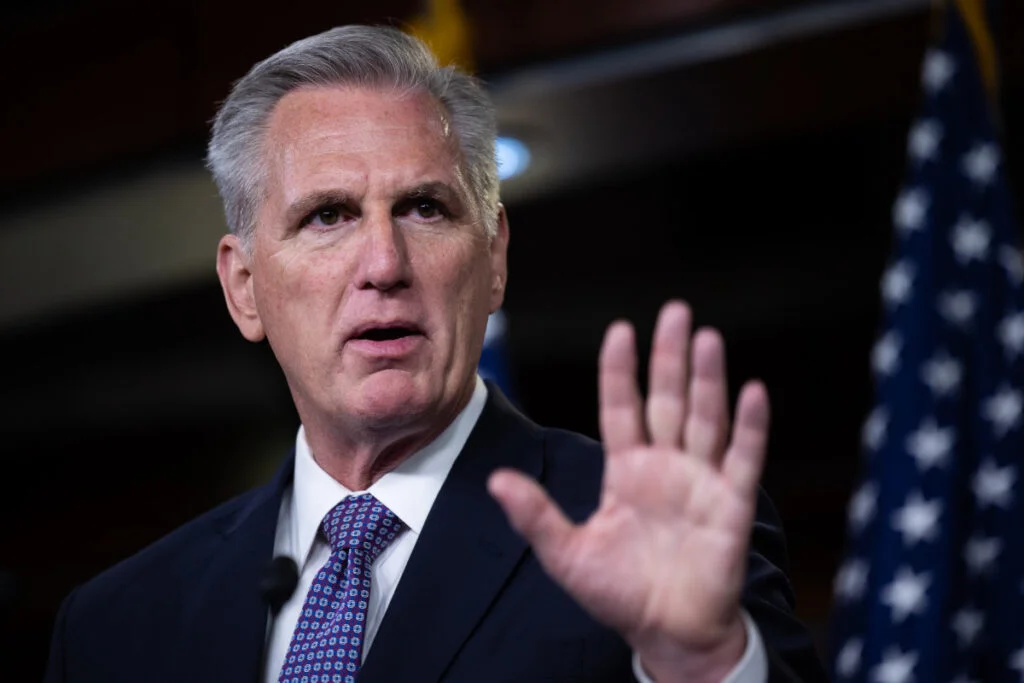Former President Donald Trump and Congressman Tom Emmer have expressed their opposition to Central Bank Digital Currencies (CBDCs) and their impact on financial privacy. They also support a bill that would limit the government’s surveillance powers over digital transactions.

In a rare show of agreement, former President Donald Trump and Congressman Tom Emmer, two prominent figures in the crypto industry, have voiced their concerns about Central Bank Digital Currencies (CBDCs) and their potential threat to financial privacy. They also pledged to work together to prevent the introduction of a CBDC in the US and protect crypto users’ rights.
Tom Emmer, the Majority Whip of the United States House of Representatives, has been a leading advocate for cryptocurrency and blockchain technology in Congress. He has introduced several bills and initiatives to promote innovation and regulation in the crypto space, such as the Blockchain Regulatory Certainty Act, the Safe Harbor for Taxpayers with Forked Assets Act, and the Blockchain Caucus.
Emmer has also proposed a bill that would limit the government’s surveillance powers over digital transactions, called the CBDC Anti-Surveillance State Act.
The bill, which has 75 cosponsors, would prohibit the Federal Reserve from issuing a CBDC unless it ensures the privacy and security of users and prevents the collection and sharing of personal data. The bill would also require the Fed to obtain a warrant before accessing any information related to digital transactions.
Emmer has recently reiterated his concerns about CBDCs and their impact on Americans’ financial privacy rights, echoing Trump’s apprehensions. He has also affirmed his commitment to collaborating with Trump in resisting the perceived growth of government surveillance.
Emmer’s statements reflect his dedication to garnering support for his anti-CBDC bill and striking a balance between technological advancements and safeguarding citizens’ privacy in the realm of digital currencies.
Trump denounces CBDCs and debanking
Former President Donald Trump has been a controversial figure in the crypto industry, as he has expressed his disapproval of Bitcoin and cryptocurrencies during his presidency. He has also criticized the role of Facebook’s Libra (now Diem) project, which he viewed as a threat to the US dollar and national security.
However, Trump has also shown signs of support for crypto, such as pardoning Ross Ulbricht, the founder of Silk Road, a dark web marketplace that used Bitcoin.
Trump has recently declared his opposition to CBDCs, citing his concerns about the risks associated with debanking and the potential political weaponization of this digital currency.
Debanking refers to the practice of denying or restricting access to banking services based on political or ideological reasons. Trump has argued that CBDCs could enable the government, banks, and regulators to debank individuals based on their political beliefs and interfere with their financial freedom.
Trump’s statement aligns with a broader narrative within the political landscape, where the role of CBDCs and government intervention in the financial landscape is under scrutiny.
His statement also coincides with the suspension of pro-Bitcoin presidential candidate Vivek Ramaswamy’s campaign, who endorsed Trump. This convergence of events underscores the growing influence of crypto-friendly narratives in American politics.
It is worth noting that despite Trump’s historical disapproval of Bitcoin and cryptocurrencies, Emmer envisions a more favorable stance if Trump runs for office again in 2024. Emmer believes that Trump could change his mind about crypto, as he has done with other issues, and that he could become a champion for the crypto industry.
